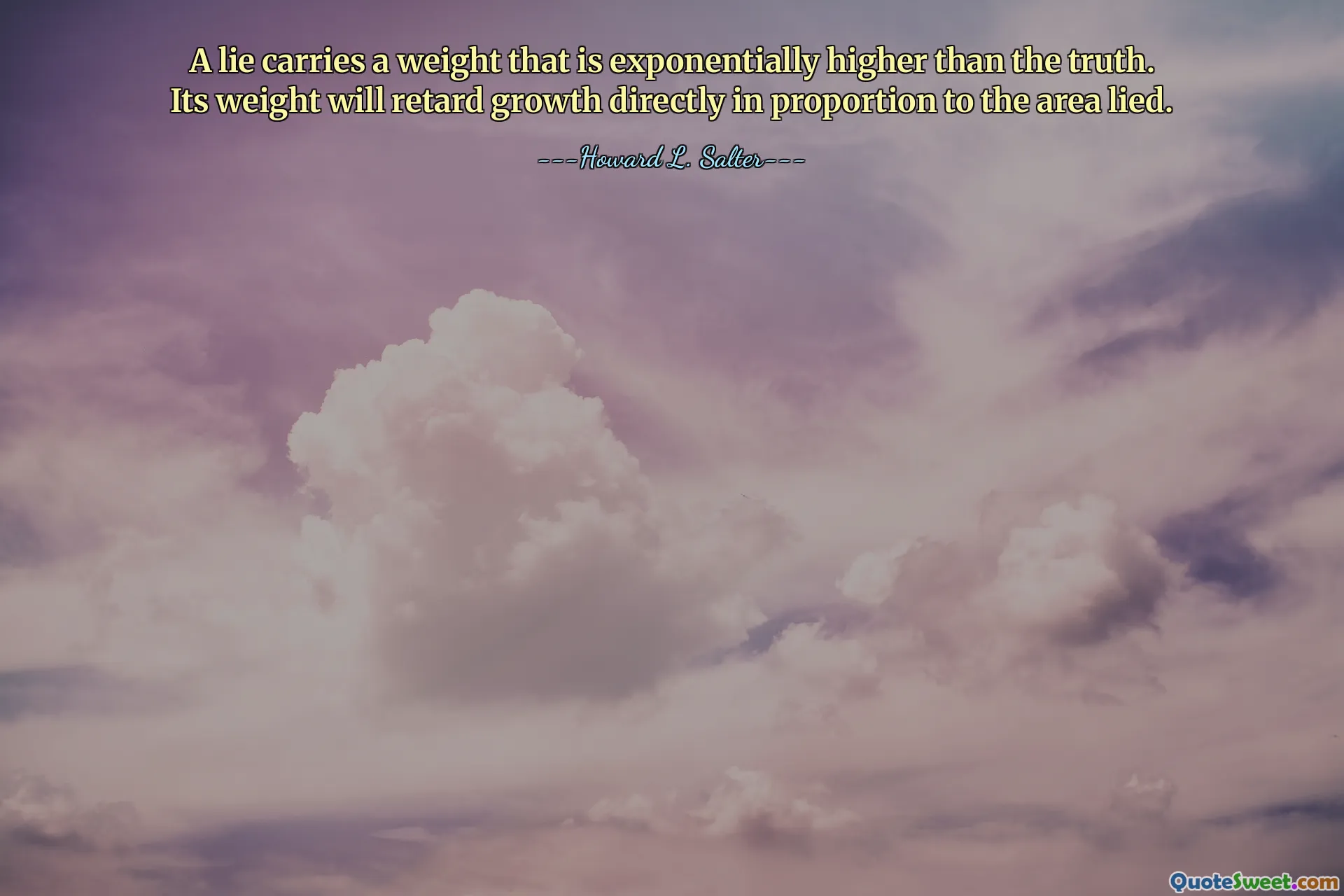
A lie carries a weight that is exponentially higher than the truth. Its weight will retard growth directly in proportion to the area lied.
Truth and lies undoubtedly have vastly different impacts on personal development and interpersonal relationships. The analogy of weight used in this quote effectively highlights the burden that lies impose compared to the truth. While the truth is often lighter and can be accepted and processed, lies have an exponentially heavier cost. This heavier cost manifests as emotional, psychological, and sometimes social weight, which can inhibit progress and growth in individuals and communities.
The idea that the burden of lies "will retard growth directly in proportion to the area lied" explains how the scale and scope of dishonesty can have a proportional negative effect. Small lies may cause minor setbacks, but larger or more pervasive deceptions can significantly stunt development, trust, and authenticity. This aligns with human experiences where trust is foundational for growth — in relationships, learning, and self-awareness. When trust is breached by lies, the entire foundation weakens, resulting in stagnation or regression.
Consequently, this quote appeals to honesty as a fundamental principle for sustaining growth, whether personal or collective. It implicitly advocates for transparency and truthfulness as facilitators of progress, while warning against the heavy impact of falsehoods. Given how lies can snowball in complexity and damage, the exponential weight metaphor is an apt and powerful reminder of the importance of truth. Overall, it teaches that even if the truth seems difficult, it remains the lighter and healthier path forward in life.
---Howard L. Salter---











